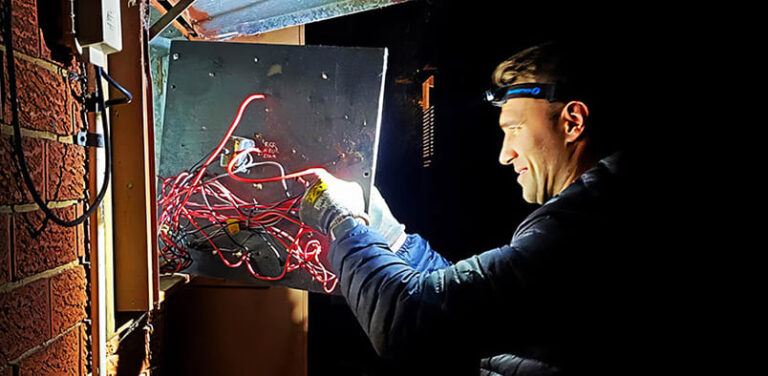Efficient Wastewater Management: Best Practices
The Basics of Wastewater Management
Wastewater management is essential for protecting public health and the environment. It involves collecting, treating, and disposing of wastewater from various sources, ensuring that harmful substances are removed before the water is released back into nature. Proper wastewater management helps prevent waterborne diseases and protects aquatic ecosystems. Various techniques, including respirometry, are employed to enhance the treatment processes.
Effective wastewater management ensures the removal of contaminants and helps recycle treated water for industrial and agricultural purposes. This practice significantly contributes to the conservation of water resources, which is especially crucial in areas prone to water scarcity. By implementing efficient wastewater management systems, communities can reduce their dependency on freshwater sources, promoting sustainability.
Key Components of Wastewater Treatment
Wastewater treatment typically involves multiple stages, including preliminary, primary, secondary, and sometimes tertiary treatment processes. Preliminary treatment removes large debris, while primary treatment settles suspended solids. Secondary treatment uses biological processes to degrade organic matter, and tertiary treatment further cleanses the water to meet specific quality standards. Each of these stages plays a vital role in ensuring that the final effluent is safe for discharge or reuse.
Preliminary Treatment
This initial stage involves removing large solids and grit that could damage equipment or hinder subsequent treatment processes. Common methods used during preliminary treatment include coarse screens, grit chambers, and primary sedimentation tanks. These methods are essential for protecting the downstream treatment processes and ensuring their efficiency.
Primary Treatment
During primary treatment, wastewater is held in settling tanks where heavier solids can settle to the bottom, and oils and greases float to the surface. This process removes about 60% of suspended solids from the wastewater. The primary treatment stage significantly reduces the load on the secondary treatment process, making it easier to manage and treat the remaining organic material.
Secondary Treatment
Secondary treatment involves biological processes where microorganisms break down organic matter. Activated sludge systems, trickling filters, and bio-towers are commonly used in this stage, significantly reducing the organic content of the wastewater. This stage is critical for removing dissolved and suspended organic matter, ensuring that the treated water meets environmental discharge standards.
Tertiary Treatment
Tertiary treatment provides a final cleansing step to remove remaining impurities. In order to make sure the water satisfies strict regulatory requirements before it is released or utilized again, sophisticated filtration, chemical processing, and nutrient removal procedures are needed. In order to produce high-quality effluent that can be properly released into the environment or recycled for uses like industrial processes or irrigation, this stage is necessary.
Innovative Technological Solutions
Advances in technology have led to more efficient and sustainable wastewater treatment methods. Techniques such as membrane filtration, advanced oxidation processes, and nutrient recovery are making it possible to treat wastewater to higher standards while reducing energy consumption and operational costs. These innovative solutions are transforming the way wastewater is managed and treated, leading to more sustainable outcomes.
Membrane filtration, for example, uses semi-permeable membranes to remove contaminants at a molecular level. This method is highly effective in producing water that is safe for reuse in various applications. Advanced oxidation processes (AOP) involve the generation of hydroxyl radicals that break down complex organic pollutants, making the treatment process more thorough. On the other hand, nutrient recovery techniques allow for the extraction and reuse of valuable nutrients, such as nitrogen and phosphorus, from wastewater. This reduces pollution and provides resources that can be used in agriculture and other industries.
Environmental and Public Health Benefits
Proper wastewater management has significant environmental benefits, such as reducing pollution and conserving water resources. It also directly impacts public health by minimizing the risk of waterborne diseases. Effective treatment processes ensure that contaminants are removed, making the water safe for various uses, including irrigation and industrial applications.
Reducing pollutants entering natural water bodies helps maintain ecological balance and protects wildlife habitats. Furthermore, minimizing waterborne contaminants ensures the safety of drinking water sources, thereby improving overall community health. Clean water is essential for life, and effective wastewater management is pivotal in ensuring that water resources remain uncontaminated.
Regulations and Compliance
Governments worldwide have established regulations to ensure that wastewater is treated effectively before being discharged. Ensuring adherence to these standards is vital in safeguarding both the environment and public health. The World Health Organization provides guidelines and standards that help countries develop and implement wastewater management practices.
Ensuring adherence to these regulations requires regular monitoring and evaluation of wastewater treatment systems. Authorities often mandate periodic reporting and testing to verify that treatment processes meet specified quality standards. Compliance not only protects the environment but also safeguards public health by ensuring that treated water does not carry harmful pollutants. Regulatory bodies work closely with wastewater treatment facilities to ensure that best practices are followed and environmental standards are met.
Community Involvement and Education
Involving the community is essential to wastewater management. More efficient management techniques can result from educating the public about the value of properly disposing of home garbage and the advantages of wastewater treatment. Community-based initiatives and educational programs can empower residents to contribute to sustainable wastewater management.
An important part in raising awareness can be played by local organizations and schools. Workshops, seminars, and informational campaigns help community members understand their role in maintaining effective wastewater management systems. By fostering a sense of responsibility and encouraging active participation, communities can work together to ensure that wastewater is managed efficiently and sustainably.
Future Trends in Wastewater Management
The future of wastewater management looks promising with the continuous development of new technologies and strategies. Innovations like smart monitoring systems and decentralized treatment facilities are expected to improve efficiency and accessibility. As awareness grows, more communities will adopt sustainable practices, leading to healthier environments and better public health outcomes.
Smart monitoring systems use sensors and data analytics to provide real-time information on the status and performance of wastewater treatment processes. This allows for timely adjustments and maintenance, ensuring that systems operate efficiently and effectively. Options for decentralized treatment are flexible and may be customized to fit the requirements of particular communities, which eases the burden on centralized institutions. These innovations are paving the way for a more sustainable and resilient approach to wastewater management.
Stay in touch to get more updates & news on Franciscotribune!






